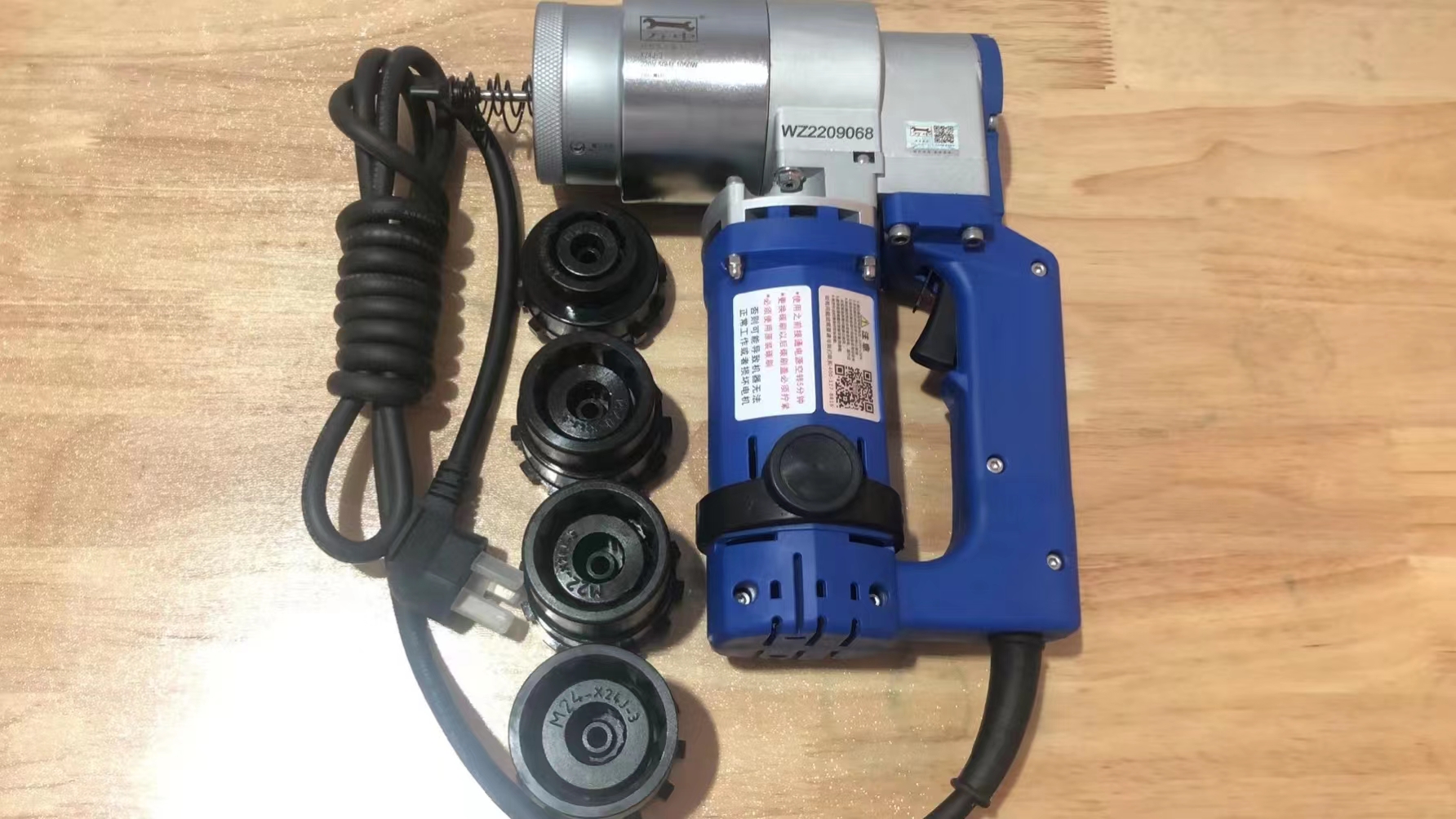扭力扳手有幾種?
How many torque wrenches are there?
常用的扭力扳手一般有三種�,分別是手動(dòng)扭力扳手、電動(dòng)扭力扳手和氣動(dòng)扭力扳手���。下面就讓我們來(lái)具體看看���!
There are generally three types of commonly used torque wrenches, namely, manual torque wrenches, electric torque wrenches and pneumatic torque wrenches. Now let's take a look at it in detail!
一、手動(dòng)扭力扳手����。
1、 Manual torque wrench.
顧名思義�����,手動(dòng)扭矩扳手是一種需要手動(dòng)操作的扭矩扳手��。以下是一些常見(jiàn)的手動(dòng)扭矩扳手��。
As the name implies, a manual torque wrench is a torque wrench that requires manual operation. The following are some common manual torque wrenches.
1�、機(jī)械音響報(bào)警式;
1. Mechanical audible alarm type;
這種扭力扳手采用杠桿原理���。在使用過(guò)程中��,當(dāng)扭矩達(dá)到設(shè)置的扭矩時(shí)���,會(huì)發(fā)出機(jī)械碰撞的聲音,扳手會(huì)變成死角���,防止過(guò)力���。
This torque wrench uses the lever principle. In the process of use, when the torque reaches the set torque, there will be a sound of mechanical collision, and the wrench will become a dead corner to prevent excessive force.
2���、數(shù)顯式&指針式(表盤(pán)式);
2. Digital display&pointer type (dial type);
這兩種類型的扭力扳手的工作基礎(chǔ)都是在機(jī)械音響上報(bào)警提示�����,并且可視化作用力矩����。
The working basis of these two types of torque wrenches is to give an alarm on the mechanical sound and visualize the acting torque.
3、滑動(dòng)式(自滑動(dòng)式)�����;
3. Sliding type (self sliding type);
這種扭手采用過(guò)載保護(hù)����、自動(dòng)卸載模式。扭矩到達(dá)設(shè)定扭矩時(shí)會(huì)自動(dòng)卸下力量(也會(huì)發(fā)出機(jī)械碰撞的聲音)���,之后扳手會(huì)自動(dòng)復(fù)位�,再用力時(shí)會(huì)滑動(dòng),避免過(guò)力�。
The handle adopts overload protection and automatic unloading mode. When the torque reaches the set torque, the force will be automatically removed (and the sound of mechanical collision will also be heard), and then the wrench will automatically reset. When the torque is applied again, it will slide to avoid excessive force.
以上幾種手動(dòng)扭力扳手中,機(jī)械音響報(bào)警時(shí)便宜�,使用較多�。
Among the above manual torque wrenches, mechanical audible alarm is cheap and used more frequently.

二、電動(dòng)扭力扳手���。
2�、 Electric torque wrench.
電動(dòng)扳手是指能夠設(shè)定扭矩值的電動(dòng)扳手���。主要分為電流式和動(dòng)態(tài)扭矩傳感器式兩種�。
The electric wrench refers to the electric wrench that can set the torque value. It is mainly divided into current type and dynamic torque sensor type.
1.電流式��;
1. Current type;
電流式扭力扳手判斷扭矩值的依據(jù)是電機(jī)擰緊過(guò)程中電流值的變化����。在使用過(guò)程中,扳手達(dá)到預(yù)定扭力后�����,馬達(dá)會(huì)立即停止工作�。
The current type torque wrench judges the torque value based on the change of current value during the motor tightening process. During use, the motor will stop working immediately after the wrench reaches the predetermined torque.
2��、動(dòng)態(tài)扭矩傳感器式�;
2. Dynamic torque sensor type;
動(dòng)力扭矩傳感器式是在擰緊軸上安裝傳感器�,可以檢測(cè)扭力值的變化,一定達(dá)到預(yù)定的扭力�����,馬達(dá)就會(huì)停止工作����。
The power torque sensor is installed on the tightening shaft to detect the change of torque value. The motor will stop working when the predetermined torque is reached.
電動(dòng)扭力扳手具有精度高、使用壽命長(zhǎng)���、故障率低等優(yōu)點(diǎn)��,可以在很多領(lǐng)域發(fā)揮作用��。
The electric torque wrench has the advantages of high precision, long service life, low failure rate, and can play a role in many fields.
三��、氣動(dòng)扭力扳手����。
3、 Pneumatic torque wrench.
氣動(dòng)扭矩扳手由壓縮機(jī)中的壓縮空氣作為空氣來(lái)源���,以此驅(qū)動(dòng)扭力扳手中的啟動(dòng)電機(jī)��,并讓齒輪擰緊螺栓����,主要有油壓脈沖式�����、離合器式��、動(dòng)態(tài)扭矩傳感器式��。
The pneumatic torque wrench uses the compressed air in the compressor as the air source to drive the starting motor in the torque wrench and let the gear tighten the bolts, mainly including oil pressure pulse type, clutch type and dynamic torque sensor type.
1���、油壓脈沖式&離合器式;
1. Oil pressure pulse type&clutch type;
這兩種都是通過(guò)扭矩值達(dá)到設(shè)定值后自動(dòng)斷氣�,避免過(guò)度的力。
Both of them automatically cut off air after the torque value reaches the set value to avoid excessive force.
2�����、動(dòng)態(tài)扭矩傳感器式;
2. Dynamic torque sensor type;
扭矩值達(dá)到設(shè)定值后�,控制器控制電磁閥的斷氣,扳手停止�����,不能再用力����,不能過(guò)度用力。
When the torque value reaches the set value, the controller controls the air cutoff of the solenoid valve, and the wrench stops. No more force or excessive force is allowed.
氣動(dòng)扭力扳手中���,油壓脈沖式因其無(wú)反作用力而受到很多人的歡迎�,但不適合打軟連接螺栓�。
Among pneumatic torque wrenches, the oil pressure pulse type is welcomed by many people because of its non reaction force, but it is not suitable for softening the connecting bolts.
